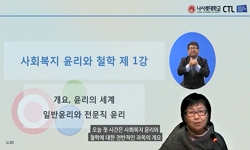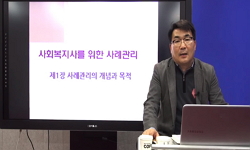현대사회에서 발생하는 여러 가지 사회문제를 해결하기 위해 국가에서는 국민의 기본 권리를 보장하는 사회복지를 실천하고 있다. 사회복지시설과 비영리단체에서 사회복지정책을 실현하...
http://chineseinput.net/에서 pinyin(병음)방식으로 중국어를 변환할 수 있습니다.
변환된 중국어를 복사하여 사용하시면 됩니다.
- 中文 을 입력하시려면 zhongwen을 입력하시고 space를누르시면됩니다.
- 北京 을 입력하시려면 beijing을 입력하시고 space를 누르시면 됩니다.
부산시 사회복지사의 언어치료에 대한 인식조사 = A Study on perceptions about speech and language therapy of social workers in Busan City
한글로보기https://www.riss.kr/link?id=T14913161
- 저자
-
발행사항
부산 : 부산가톨릭대학교 대학원, 2018
-
학위논문사항
학위논문(석사) -- 부산가톨릭대학교 대학원 , 언어청각치료학과 , 2018. 8
-
발행연도
2018
-
작성언어
한국어
-
주제어
부산시 ; 사회복지사 ; 언어치료서비스 인식
-
발행국(도시)
부산
-
형태사항
; 26 cm
-
일반주기명
지도교수: 허명진
-
UCI식별코드
I804:21037-200000107820
- 소장기관
-
0
상세조회 -
0
다운로드
부가정보
국문 초록 (Abstract)
현대사회에서 발생하는 여러 가지 사회문제를 해결하기 위해 국가에서는 국민의 기본 권리를 보장하는 사회복지를 실천하고 있다. 사회복지시설과 비영리단체에서 사회복지정책을 실현하고, 사회복지서비스를 제공하는 역할을 실천하는 사람은 사회복지사이다.
사회복지시설에서 근무하는 사회복지사는 대상자에게 다양한 프로그램을 제공하기 때문에 타 전문분야 업무에 대한 이해가 부족하면 대상자에게 적절한 서비스를 연계하기 어렵게 된다. 그러므로 사회복지사는 다양한 분야의 전문가들과 협력하여 대상자의 욕구와 문제를 파악한 후 적절하게 중재해주어야 한다. 따라서 본 연구는 부산시 사회복지시설에 근무하는 사회복지사를 대상으로 언어치료서비스에 대한 인식을 살펴보기 위해, 현재 부산시 사회복지시설에 운영하고 있는 언어치료실 현황을 살펴보고, 그들이 생각하는 언어치료서비스의 효율성과 전문성에 대해 조사하고자 하였다.
본 연구는 2018년 3월 1일부터 5월 30일까지 부산시 소재 사회복지시설 중 종합복지관 19곳, 장애인복지관 8곳, 노인복지관 5곳 및 비영리단체 3곳으로 총 35곳에 2급 이상의 사회복지사 자격증을 소지하고, 설문에 동의한 사회복지사를 대상으로 연구를 진행하였다. 사회복지시설에 직접방문이나 E-mail 회신 및 우편으로 설문지 총 250부를 배부하였고, 회수한 235부의 설문지 중 일부 문항만 작성되어 있거나 불성실하게 응답한 21부를 제외한 214부의 설문지를 분석하였다. 조사 도구는 설문지를 사용하였고, 대상자의 일반적 특성 7문항, 사회복지시설의 언어치료서비스 운영 현황 7문항, 사회복지사의 언어치료서비스 인식 20문항으로 총 34문항이며, 33개의 객관식 문항과 1개의 주관식 문항으로 구성되었다.
전체 35곳의 사회복지시설에서 근무하는 사회복지사 214명을 대상으로 사회복지시설의 언어치료서비스 운영 현황과 언어치료서비스에 대한 인식을 살펴본 뒤, 다음과 같은 결론을 도출하였다.
첫째, 214명의 부산시 사회복지시설에서 근무하는 사회복지사 중 언어치료서비스 운영 경험이 없는 사회복지사는 109명(50.9%)이었으며. 언어치료서비스 운영 경험이 있는 사회복지사는 105명(49.1%)로 나타났다. 사회복지시설의 언어치료서비스 운영을 경험한 사회복지사들이 제시한 언어치료 현황을 살펴보면, 언어치료사의 근무 제공 형태는 파트타임이 많았으며, 언어치료서비스는 주 2회, 개별치료로 실시되고 있었다. 또한 대상자의 가장 우선적인 언어치료비 지불형태는 바우처 카드였다.
둘째, 부산시 사회복지사의 언어치료서비스에 대한 인식을 살펴본 결과, 먼저 사회복지사들은 언어치료서비스가 대상자에게 의사소통능력, 사회성 및 대인관계, 자존감, 자기 이해 향상에 긍정적인 영향을 미치는 것으로 인식하고 있었다. 다음으로 언어치료서비스 전문성에 대해 사회복지사들의 약 80% 이상이 언어치료서비스를 전문적이고 독립적인 영역으로 인식하며 언어치료사의 전문적인 판단을 신뢰하고 있었고, 언어치료사가 전문적 지식 및 기술을 가지고 있어야 한다고 인식하고 있었다. 그러나 약 10%의 사회복지사들은 국가자격증을 취득하지 않은 언어치료사나 일반인 누구나 쉽게 치료를 할 수 있다고 인식하고 있어 사회복지시설에 언어치료사의 역할이나 언어치료서비스의 대상자, 방법, 평가 등에 대한 정보를 적극적으로 제공할 필요성이 요구된다. 마지막으로 부산시 언어치료서비스 활성화에 대해 사회복지사들은 사회복지사업이 언어치료서비스를 포함하면서도 서로 다른 독립적인 영역으로 상호보완적으로 관계 형성되어야 함을 인식하고 있었다.
이상의 결과를 바탕으로 부산시 사회복지시설의 사회복지사들은 언어치료서비스의 효율성과 언어치료사의 전문성을 대다수 인정하고 있으며, 언어치료서비스 사업의 확대와 제도적 방안 마련의 필요성을 인식하고 있었다. 본 연구는 언어재활사 협회나 관련 기관에서 대상자를 위한 언어치료서비스 정보와 체계적인 교육 프로그램을 개발하는 기초자료로 활용될 수 있을 것이다.
다국어 초록 (Multilingual Abstract)
To solve various social problems happening to modern society, social welfare is practiced to guarantee basic rights of the people in the country. A social worker is the one who realize social welfare policies in social welfare facilities and non‐pro...
To solve various social problems happening to modern society, social welfare is practiced to guarantee basic rights of the people in the country. A social worker is the one who realize social welfare policies in social welfare facilities and non‐profit organizations, who plays a role in providing social welfare services.
As social workers working at social welfare facilities provide various programs to the target people, and a lack of understanding of the work in other specializations makes it difficult to connect appropriate services to the subjects, it is necessary to cooperate with experts in various fields to identify the needs and problems of the subjects and to properly mediate them. Therefore, to look at the perception of language therapy services, for social workers working in social welfare facilities in Busan, this study attempts to examine the current status of the language therapy rooms operated by the social welfare facilities in Busan, and investigate the efficiency and professionalism of their language therapy services.
From March 1 to May 30, 2018, this study was carried out with social workers who have more than grade 2 social worker qualification in 35 places including 19 integrated welfare centers, eight community rehabilitation centers, five elderly welfare centers and three non‐profit organizations among the social welfare facilities in Busan, and agreed with the questionnaire. A total of 250 questionnaires were distributed to the social welfare facilities by direct visits, e‐mail reply and postal mail, and a total of 214 questionnaires were analyzed, excluding 21 questionnaires that were partially completed or responded insufficiently from the collected 235 questionnaires. The questionnaire was used as the survey tool, which consisted of 33 multiple choice questions and one supporting question out of a total 34 items such as seven items of general characteristics of the subjects, seven items of language therapy service operation status of social welfare facilities, and 20 items of social worker's language therapy service.
On the subjects of 214 social workers working at a total of 35 social welfare facilities, this study reviewed the current status of language therapy services and perception of language therapy services in social welfare facilities, and the following conclusions were drawn as follows. First, among the 214 social workers in Busan, 109 social workers (50.9%) were those who did not have experience of language therapy service, and 105 social workers (49.1%) were those who have experience of language therapy service. To examine the language therapy status presented by social workers who experienced the operation of language therapy service of social welfare facilities, the type of work provided by the language therapist was mostly part‐time, and the language therapy service was administered twice a week by individual treatment. Also, the form of payment for language treatment with the first priority was voucher cards.
Second, in the results of exploring Busan city social workers’ perception of the language therapy service in terms of a perception of efficiency, professionalism and activation, above all, social workers perceived that the language therapy service had a positive effect on the improvement of language therapy subjects' communication ability, self‐esteem, self‐understanding, sociality and interpersonal relationship. Next, in the results of examining the perception of the expertise of language therapy service, more than 80% of the social workers who responded to the questionnaire perceived the language therapy as a professional and independent area, trusted the professional judgment of the language therapist, and they perceived that the language therapist should have professional knowledge and skills. However, as about 10% of social workers are aware that language therapists who do not have a national license or any normal people can easily perform the therapy, it is necessary to positively provide social welfare facilities with information on the role of language therapy, treatment targets, methods, and evaluation. Lastly, in the results of investigating the awareness of activation of Busan city language therapy service, social workers perceived that the area of social workers should be complementary to each other in independent areas, including language therapy services.
Based on the above results, it is found that most of social workers in the social welfare facilities in Busan acknowledge the efficiency of language therapy services and the expertise of language therapists, and recognize the expansion of language therapy service projects and the need for institutional arrangements. This study can be used as basic data to develop language therapy service information and systematic education program for the subjects in the Korea Association of Speech‐language Pathologists and related organizations.
목차 (Table of Contents)
- 국문초록 ⅰ
- 표 목 차 ⅵ
- 그림목차 ⅷ
- Ⅰ. 서 론 1
- 국문초록 ⅰ
- 표 목 차 ⅵ
- 그림목차 ⅷ
- Ⅰ. 서 론 1
- 1. 연구의 필요성 및 목적
- 2. 연구 문제
- Ⅱ. 이론적 배경 6
- 1. 복지시설 및 사회복지사의 역할
- 2. 사회복지시설의 언어치료서비스
- 3. 사회복지사의 언어치료서비스에 대한 인식
- Ⅲ. 연구 방법 15
- 1. 연구 대상
- 2. 조사 도구
- 3. 연구 절차
- 4. 자료 분석
- Ⅳ. 연구 결과 23
- 1. 사회복지시설의 언어치료서비스 운영 현황
- 2. 사회복지사의 언어치료서비스 인식
- Ⅴ. 결론 및 논의 44
- 참고문헌 48
- 영문초록(Abstract) 51
- 부록 55












